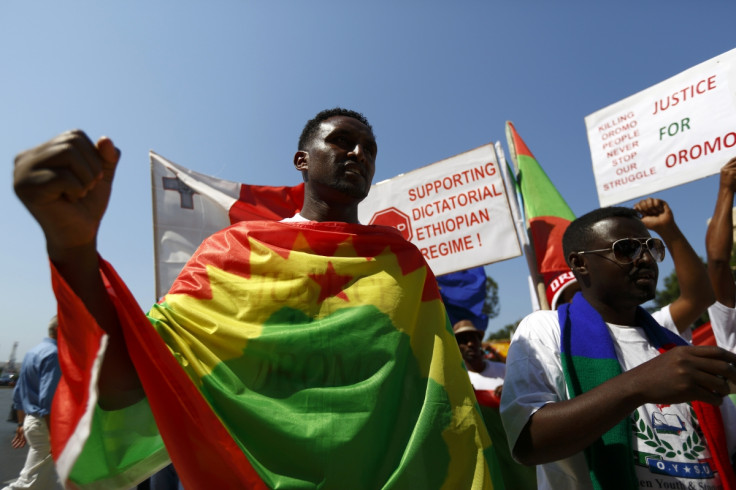Oromo protests: Ethiopia apologises for deaths but vows crackdown on 'anti-peace forces'

The Ethiopian prime minister has apologised for the deaths that occurred during protests in Oromia, Ethiopia's largest state. Hailemariam Desalegn acknowledged the situation escalated because government failed to address citizens' grievances, but claimed "anti-peace forces" had infiltrated legitimate protests.
Who are the Oromo people?
The Oromo people are Ethiopia's largest ethnic group and their population amounts to more than 25 million (around 35% of Ethiopia's total population). They originated in the Horn of Africa, where they are believed to have lived for millennia.
Oromo people speak Afaan Oromoo, as well as Amharic, Tigrinya, Gurange and Omotic languages. They are mainly Christian and Muslim, while only 3% still follow the traditional religion based on the worshipping of the god, Waaq.
In 1973, Ethiopian Oromo created the Oromo Liberation Front (OLF), which stemmed from the discontent over a perceived marginalisation by the government and to fight the hegemony of the Amhara people, another large ethnic group in Ethiopia.
OLF – still active today – also calls for the self-determination of the Oromo people. It has been deemed as a terror organisation that carried out violent acts against people in Ethiopia, Somalia and Kenya. The group has always denied such allegations, claiming its mission is to terminate "a century of oppression" against the Oromos.
Oromo people, Ethiopia's biggest ethnic group, first took to the streets in November 2015 to voice their dissent against a draft plan that aimed to expand the boundaries of the capital Addis Ababa. They argued the so-called "Addis Ababa master plan" would lead to forced evictions of Oromo farmers who will lose their land and undermine survival of the Oromo culture and language.
The Ethiopian government scrapped the master plan following increasing agitation which activists claimed led to the death of at least 200 protesters, a casualty figure the government has refuted.
"Anti-peace forces... in a bid to divert the people's legitimate questions... have inflicted losses on human lives and government and private property," Desalegn said, according to the BBC. He added that problems in Oromia were a result of "unresponsiveness and unemployment" but also said government would intensify action "against the anti-peace forces".
Desalegn made the remarks after Oromo activists told IBTimes UK they were still protesting on the streets as they want self-rule. An activist who spoke on condition of anonymity explained they were also protesting against the alleged violence carried out by security forces against demonstrators.
On 21 February, Human Rights Watch (HRW) released a report warning at least 200 had been killed with further arrests of Oromo protesters by security forces, including the military.
However, Ethiopia dismissed the allegations with an official telling IBTimes UK the HRW report was" abysmal propaganda." The government claimed the death toll was much lower than 200 but did not give a specific figure. Protesters were also accused of trying to secede and create an independent Oromia state.
© Copyright IBTimes 2025. All rights reserved.





















